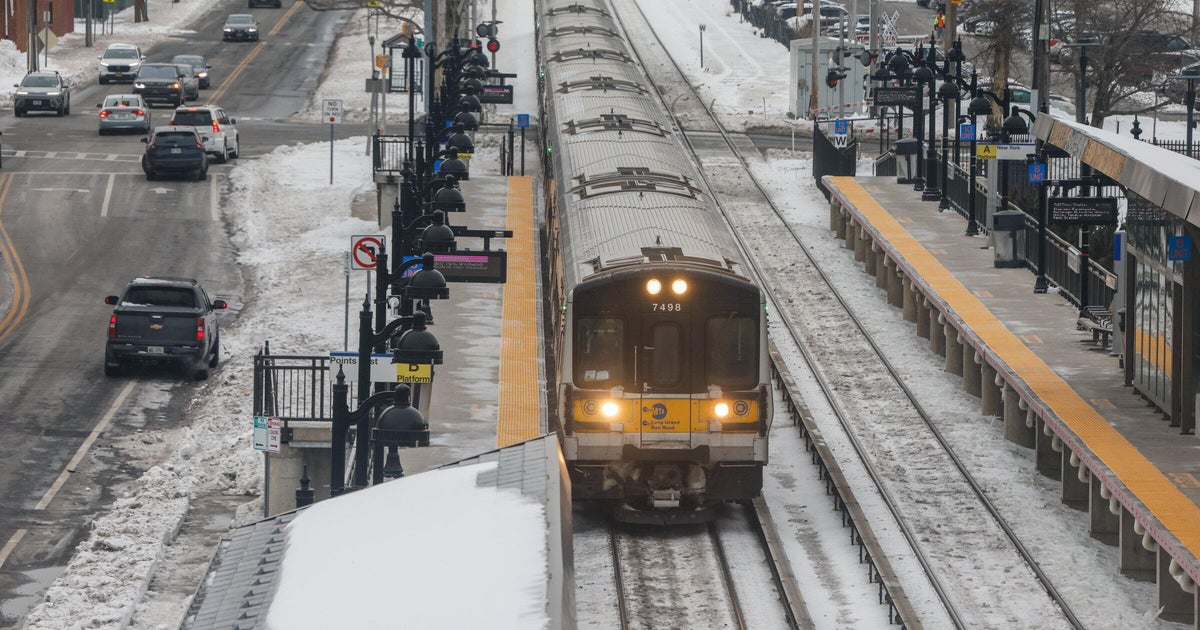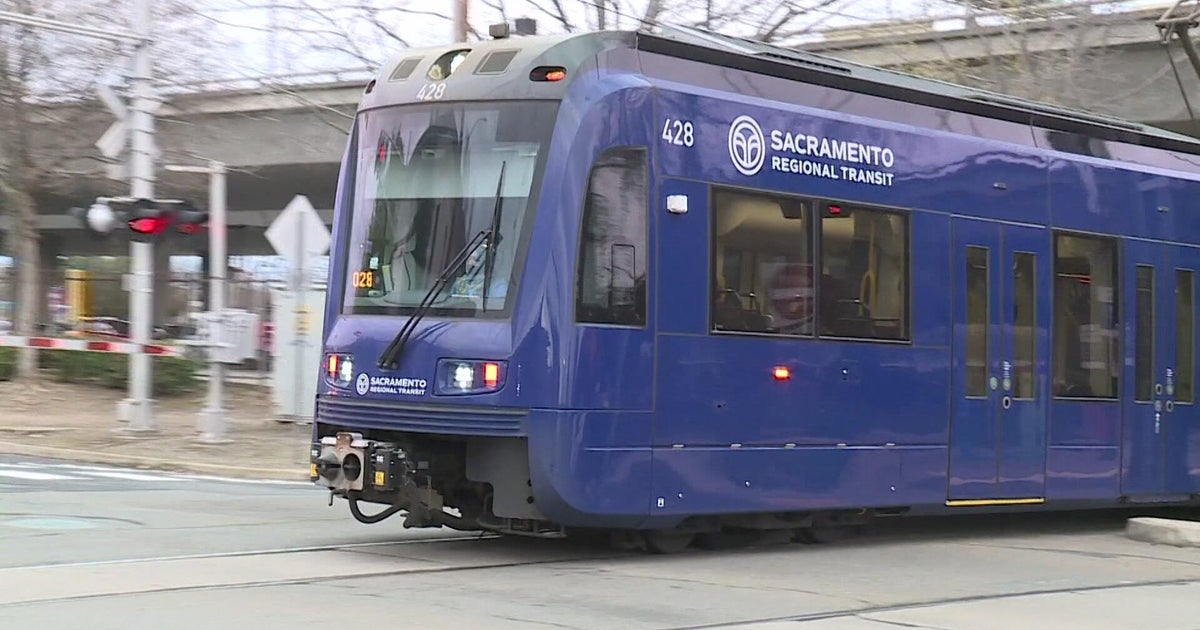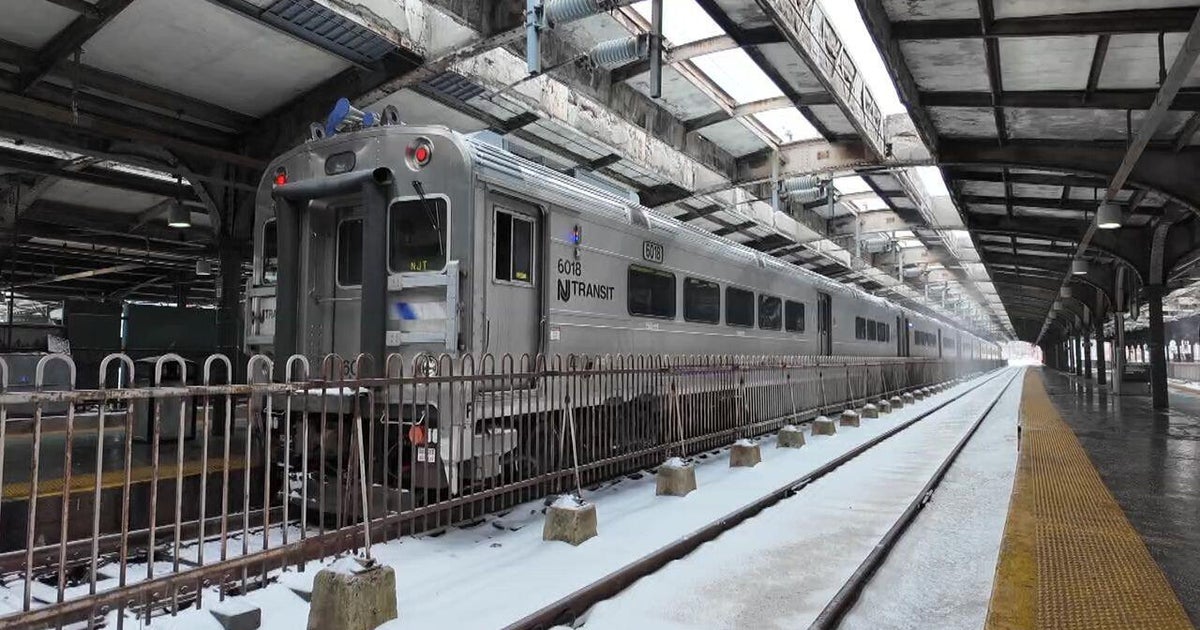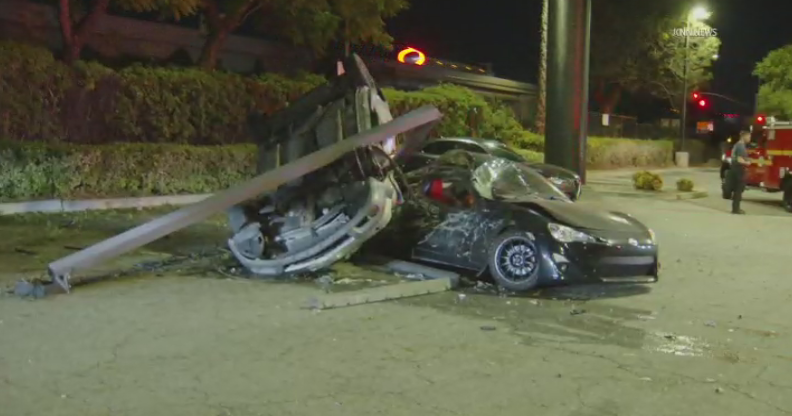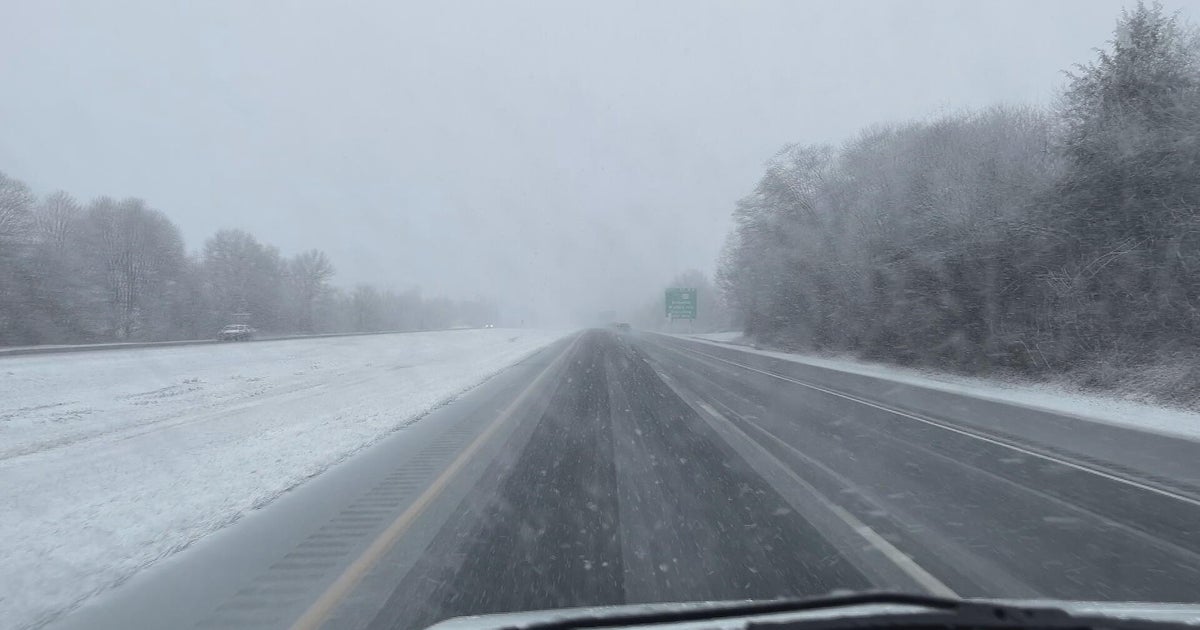Challenges Remain For California's High-Speed Rail Plan
SACRAMENTO (CBS / AP) -- California lawmakers may have given their OK to what could be the nation's first high-speed rail line, but the project is still a ways from leaving the station.
Even with prominent supporters such as President Barack Obama and Gov. Jerry Brown, bullet train backers must still overcome a number of challenges, including environmental concerns, clashes with local leaders over land use, a $68 billion overall price tag with no funding guarantees, and an increasingly disenchanted public.
Supporters applauded Friday when the state Legislature narrowly approved $4.5 billion in state funds for rail improvements and to begin construction of the first segment of high-speed track in the agricultural Central Valley. The move enabled the state to tap $3.2 billion in federal bond money.
Critics, however, are redoubling their efforts to derail the project that could eventually link Los Angeles and San Francisco with trains traveling up to 220 mph.
Among those gearing up for a fight are the farmers whose land lies in the path of the massive infrastructure project.
The Madera and Merced county farm bureaus have filed a lawsuit to halt the project on grounds that the state has not done enough environmental vetting. The plaintiffs say the train would render 1,500 acres of fertile land unfarmable and disrupt 500 agricultural businesses. More suits are expected in the coming months.
"We are going to protect our property," said Frank Oliveira, a farmer who has been active in opposing the plan.
Brown, a Democrat, has made the project a touchstone of his administration.
"It's a job creator and thank God we got it," he told reporters Monday at an event with U.S. Transportation Secretary Ray LaHood at the Port of Oakland.
Brown initially tried to prevent courts from using the state's complex environmental law to stop construction but backed down under pressure as he sought to win lawmakers' approval.
Some observers say the state might avoid an injunction delaying the project because courts often give public agencies the benefit of the doubt in environmental complaints.
However, California has some of the most stringent environmental regulations in the country, and even if the lawsuits are thrown out, construction could be bogged down for years by the requirements of the California Environmental Quality Act.
Funding is another potential line of attack against the state's largest-ever construction project.
California voters approved $10 billion in bonds for the project in 2008 and Friday's vote assured that the state will be able to collect $3.2 billion in federal money that could have been rescinded if lawmakers failed to act.
That leaves $55 billion still needed to finish the line, assuming it doesn't go over budget. The cost is lower than the California High-Speed Rail Authority's initial $98 billion estimate.
LaHood on Monday praised Democratic lawmakers for approving the project, despite intense political pressure. He said it reinforces California's position as a leader in high-speed rail and added that politicians initially didn't know where all the money would come from for the interstate highway system, but they forged ahead anyway.
"Fifty years later, we have the best road system in America built with federal, state and private dollars, and that is the direction for high-speed rail," he said.
Congressional Republicans have said they will block any further funding for the bullet train, and investors have not flocked to the project as hoped.
KCBS' Doug Sovern Reports:
California voters also appear less willing to support additional funding. A Field Poll in December found the 2008 rail bond would fail if put to a vote today.
The administration's latest business plan relies on private investment and industrial fees from California's cap-and-trade program to reduce greenhouse gas emissions.
"The money is there," Brown said. "We have the capability in California in a $2 trillion annual economy to finance this thing."
Lawmakers' approval of the plan last week was a political win for Brown, who has emerged as high-speed rail's most visible cheerleader and staked his future on the project.
The 73-year-old has likened the plan to the comprehensive state water project first undertaken by his father, Gov. Pat Brown, in the late 1950s. On Monday, he compared it to Abraham Lincoln's initiation of the transcontinental railroad.
But in vigorously supporting high-speed rail, Brown may be endangering a proposed tax increase on the November ballot that is central to his effort to bring California's unwieldy budget into balance. Brown is proposing to temporarily raise income taxes on those who make more than $250,000 a year and sales taxes on all Californians to avoid further cuts to schools and other state programs.
A Field Poll taken before last week's vote found support for Brown's tax initiative could slip considerably if lawmakers approved funding for high-speed rail.
Brown said Monday he intends to focus on the benefits of the plan for the whole state and not get mired in political details or polls.
That approach may have already turned some critics against the plan. Anja Raudabaugh, executive director of the Madera County Farm Bureau, said that without a sweetener such as a rail station in the Central Valley, the project was not worth the cost to her community.
"We feel that this project is being voted for the benefit of so many others in California, but in our county we really don't see the benefit," she said.
(Copyright 2012 by CBS San Francisco. All Rights Reserved. This material may not be published, broadcast, rewritten, or redistributed.)
